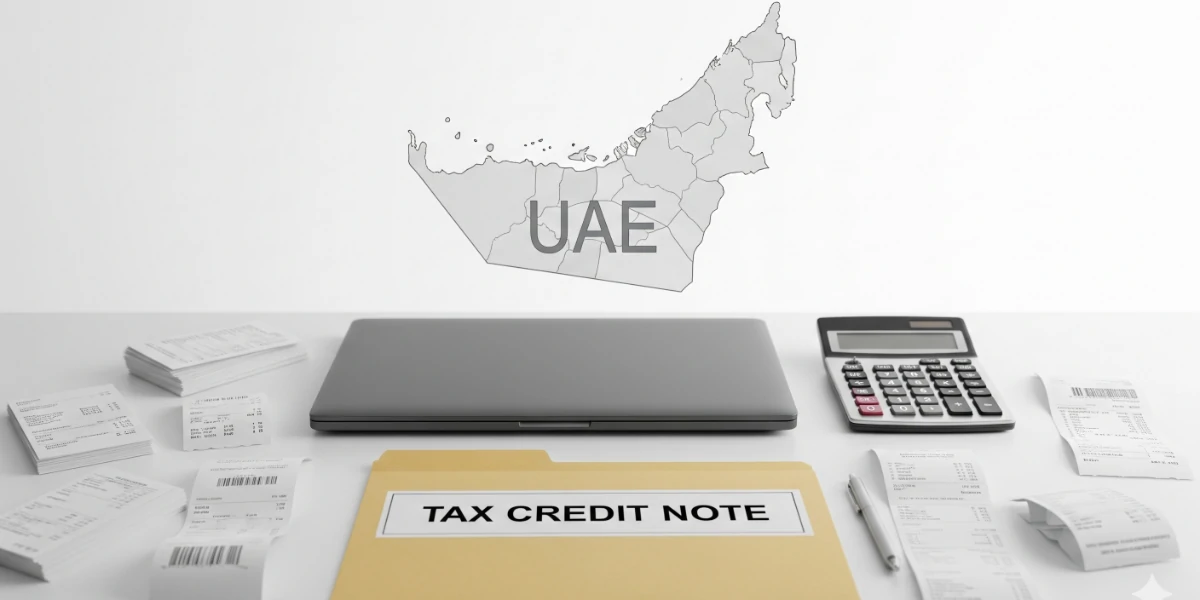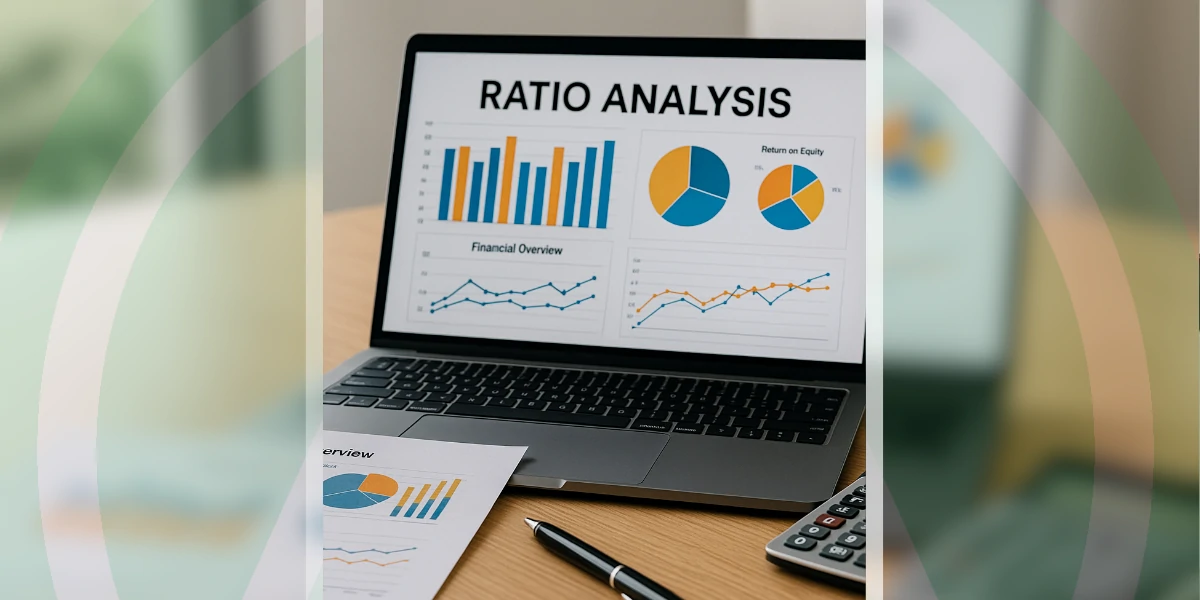AI-Powered Accounting Tools: Are They Worth It for SMEs?

Introduction
Small and medium-sized businesses in the UAE often face the challenge of balancing growth with compliance. Corporate tax, VAT filing, and record-keeping can be overwhelming for companies without large finance teams. Mistakes can bring penalties, and manual work consumes time that could be spent on building the business.
AI-powered accounting tools offer a way forward, automating tasks and providing real-time insights. But are they truly worth it for SMEs? This guide explores how these tools work, their advantages, and how they support scaling businesses. For many, these solutions act as an extension of accounting and bookkeeping services Dubai SMEs already rely on.
What Are AI-Powered Accounting Tools?
AI-powered accounting tools use machine learning, automation, and cloud technology to simplify financial management. Instead of manually entering transactions, the system recognises and categorises them automatically. These tools also analyse data to provide insights into cash flow, expenses, and profitability.
Typical features include:
- Automatic bank feeds to record transactions directly.
- Optical character recognition (OCR) to scan receipts and invoices.
- Categorisation of expenses and income with high accuracy.
- Real-time dashboards with cash flow and profit tracking.
- VAT filing support with automated error checks.
Well-known examples include Xero, Wafeq, QuickBooks, and Zoho Books. Each offers slightly different features but shares the goal of making accounting easier for SMEs. Many of these are delivered as cloud accounting services, making them accessible and scalable for growing businesses.
Why AI Tools Appeal to SMEs in the UAE
The UAE business environment has become more regulated with the introduction of corporate tax alongside VAT. For SMEs, compliance requirements are now heavier than before. AI accounting tools help address these challenges.
Key reasons SMEs adopt AI tools:
- They cut down on repetitive manual work.
- They reduce errors in financial records and VAT submissions.
- They provide instant insights to support decision-making.
- They integrate with payroll, invoicing, and tax systems for smoother workflows.
Beyond these reasons, SMEs also recognise that adopting AI helps them present a more professional image to investors and banks. Having accurate and timely records increases trust, making it easier to secure funding or negotiate credit lines. This advantage is particularly valuable when competing with established accounting firms in Dubai.
Benefits of AI Accounting Tools for SMEs
Automation Saves Time
Manual data entry and reconciliations can take hours each week. AI automates these tasks, allowing SMEs to focus on operations and growth. With AI-enabled scanning, hundreds of invoices can be processed in minutes instead of days.
Accuracy in Records
AI reduces the risk of human error. For corporate tax filing services, accurate records are essential, and AI makes them more reliable. This reduces the chances of mismatches between VAT returns and financial statements, a common concern for companies using traditional accounting services for small business.
Real-Time Visibility
Business owners no longer need to wait for month-end reports. Dashboards show cash positions, revenue, and expenses at any time. These real-time insights support faster decision-making.
Compliance Support
VAT and corporate tax rules require precise reporting. AI tools support compliance by:
- Calculating VAT automatically.
- Preparing draft VAT returns.
- Flagging deductible and non-deductible expenses.
- Sending reminders for filing deadlines.
Scalable for Growth
AI-powered accounting solutions are designed to help businesses grow without needing large teams. For SMEs, this scalability is one of the most practical benefits. Instead of hiring extra staff as transactions and reporting requirements increase, AI platforms can process higher volumes of data automatically.
- Lean operations: A small team can handle accounting efficiently with AI support.
- Efficiency at scale: Modern cloud accounting services adjust to growing transaction numbers with minimal extra setup.
- Cost management: By reducing the need for additional hires, SMEs save on payroll while still maintaining accurate records.
- Focus on growth: With routine tasks automated, business owners and teams can concentrate on strategy, sales, and client relationships.
This ability to scale smoothly makes AI accounting tools a strong ally for SMEs planning to expand without the heavy overhead of building large finance departments.
Better Cash Flow Management
AI systems forecast trends by analysing historical data. For SMEs, this means predicting when cash might run low and planning payments accordingly.
Stronger Decision-Making
AI tools provide more than numbers. They highlight patterns, compare performance across time periods, and flag unusual changes. These insights help business owners:
- Decide when to invest in expansion.
- Recognise cost areas that are increasing too quickly.
- Understand seasonal shifts in income and expenses.
With this knowledge, managers can act proactively instead of reacting too late.
Improved Client and Investor Confidence
Accurate, up-to-date financials build trust. Whether applying for funding, negotiating supplier terms, or reporting to investors, SMEs with AI-supported records demonstrate professionalism and reliability. This advantage can set them apart in a competitive market where trusted accounting and bookkeeping services Dubai are already in demand.
How AI Fits Into Daily SME Workflows
AI accounting tools do more than replace manual data entry. They integrate with everyday business processes, making financial management smoother and less time-consuming. In practice, this means:
- Linking directly with banks to reconcile transactions daily.
- Preparing draft VAT returns that are ready for review.
- Providing dashboards that highlight cash flow risks.
- Combining invoicing, payroll, and expense tracking in one platform.
For SMEs in the UAE, this integration creates a single source of truth for finances. Instead of juggling multiple systems or waiting for end-of-month reports, business owners can track performance instantly and stay compliant with VAT and corporate tax rules. Many accounting firms in Dubai now recommend AI-powered systems for exactly this reason.
Need help setting up a clean, simple workflow? Contact Alpha Pro Partners today for a free consultation.
AI vs Traditional Accounting Methods
Traditional methods rely heavily on manual processes. SMEs often collect receipts, type details into spreadsheets, and perform reconciliations only at the end of the month. This delays visibility and increases the chance of mistakes.
AI systems approach things differently. They automate data entry, categorisation, and reconciliation every day, ensuring records are always up to date. The advantages include:
- Faster processing with less human effort.
- Reduced errors because AI cross-checks transactions.
- Instant access to financial information for smarter decisions.
- More consistent compliance with VAT and corporate tax rules.
- Improved efficiency when scaling operations.
This shift gives SMEs more control over their finances and frees time for growth-focused tasks. A company that once needed several employees for bookkeeping can now manage with fewer staff supported by AI tools and modern accounting services for small business.
How AI Supports Compliance Tasks
AI tools are designed to assist with day-to-day accounting and compliance processes rather than replace professional tax systems. They help by:
- Organising and categorising financial data for easy review.
- Highlighting potential errors in invoices and receipts.
- Preparing draft reports that simplify VAT and tax reviews.
- Ensuring consistency between financial statements and VAT filings.
These features make accounting tasks more manageable for SMEs and support smoother compliance overall. By reducing manual effort, AI lowers the risk of late submissions and associated penalties.
Key Considerations Before Choosing an AI Tool
When selecting AI-powered accounting software, SMEs should ask:
- Does it support VAT filing services and corporate tax needs?
- Is there strong integration with banks and payment systems?
- Can it scale with business growth?
- Is support available for setup, such as Xero implementation or onboarding help from the provider?
- Does it provide clear reporting that managers can understand easily?
The Future of AI in SME Accounting
AI in accounting will only grow stronger. In the UAE, we may see tools linking directly with tax authorities for real-time submissions. More advanced AI could predict cash flow risks or automate compliance entirely. Early adoption gives SMEs a head start in managing finances with ease.
Potential developments include:
- Automated integration with e-invoicing systems.
- Smarter forecasting using historical and industry data.
- Instant compliance checks linked to VAT and corporate tax portals.
- Greater use of natural language queries where business owners can ask the system questions in plain English or Arabic.
Wider Impacts on SME Ecosystems
AI adoption in accounting also supports the broader SME ecosystem:
- Banks and lenders gain more confidence in lending decisions when records are accurate.
- Auditors spend less time on checking transactions and more on providing insights.
- Governments receive more accurate tax data, reducing disputes and improving compliance rates.
This ripple effect shows how AI does not just benefit individual companies but strengthens the business environment overall.
Quick setup checklist
- Choose one cloud platform that connects to your bank.
- Turn on bank feeds and receipt capture.
- Set VAT rates, tax periods, and filing reminders.
- Review draft VAT returns monthly, not just at quarter end.
- Reconcile cash and bank balances weekly.
- Schedule a quarterly human review of ledgers and reports.
Conclusion
AI-powered accounting tools are not a luxury but a practical solution for SMEs in the UAE. They automate daily tasks, reduce errors, and provide real-time insights. Modern cloud platforms already show how far automation can go. Paired with sensible controls and periodic human review, AI makes day-to-day accounting simpler. For SMEs aiming to grow without being slowed down by admin work, they are worth serious consideration.
Ready to switch on a smarter setup? Alpha Pro Partners helps UAE SMEs design AI-led accounting workflows, align VAT settings, and build clear controls so compliance stays simple as you scale. Contact our team to get started today.
Frequently Asked Questions
Can AI tools replace accountants completely?
No. They manage routine tasks but cannot replace strategic tax planning or business advice.
Do AI tools help with VAT filing in the UAE?
Yes. They prepare VAT reports automatically, but a review step is recommended for accuracy.
Are AI tools suitable for small businesses in Dubai?
Yes. They simplify bookkeeping and compliance for SMEs of all sizes.
How do AI tools help you prepare for corporate tax?
They keep ledgers clean, produce clearer profit reports, and flag expense categories. This makes corporate tax preparation easier, with fewer adjustments at year end.
Are cloud accounting services secure?
Yes. Reputable platforms use encryption, secure servers, and regular backups to protect financial data.
Can implementation support help SMEs?
Yes. Proper setup ensures the system is configured correctly and that teams use the features fully.
What cost savings can SMEs expect?
Savings come from reduced manual work, fewer errors, and lower compliance costs. Time saved can also be redirected to sales and growth.
Do AI tools support multiple currencies?
Yes. Most cloud accounting services support multi-currency, which is essential for global trading.
How do AI tools compare with manual methods?
They save time, reduce errors, and provide real-time visibility compared to spreadsheets or paper systems.






.png)






.webp)
.webp)


.png)
.png)
.png)
.png)
.png)

.png)
.png)



.png)
.png)





.jpg)


.jpg)




.png)
.png)









